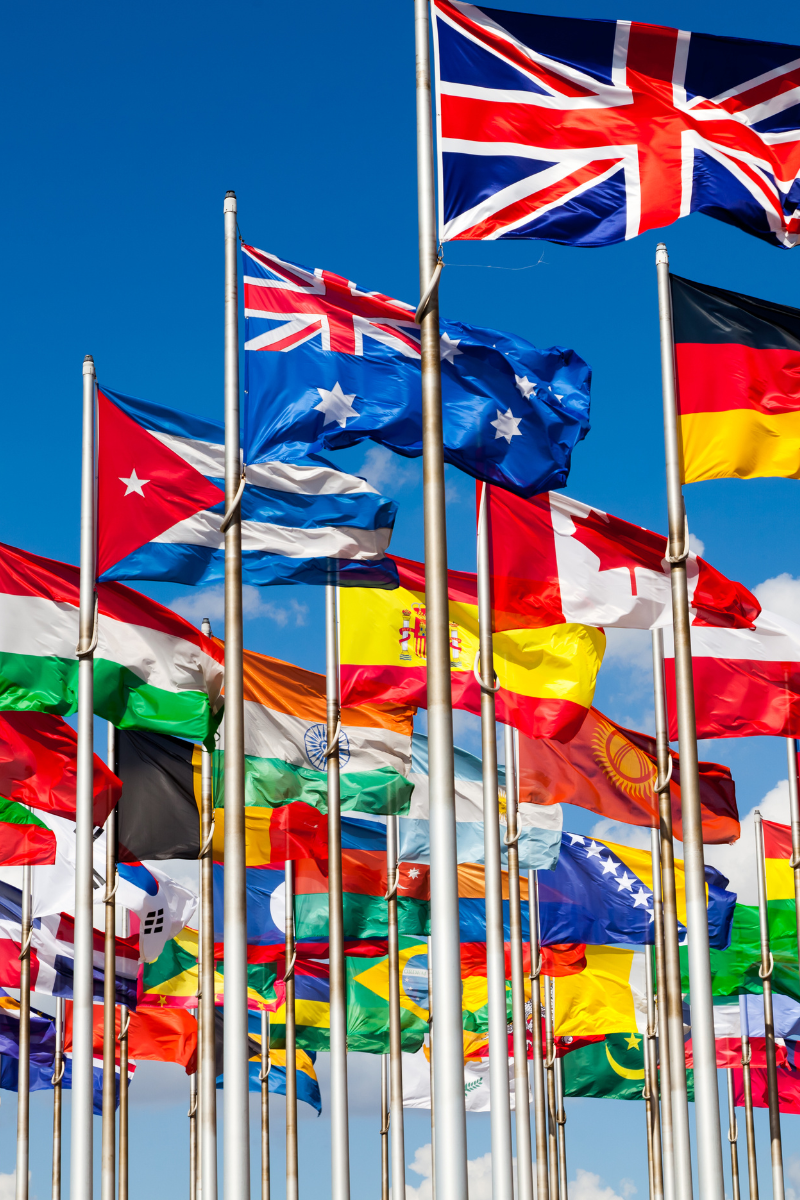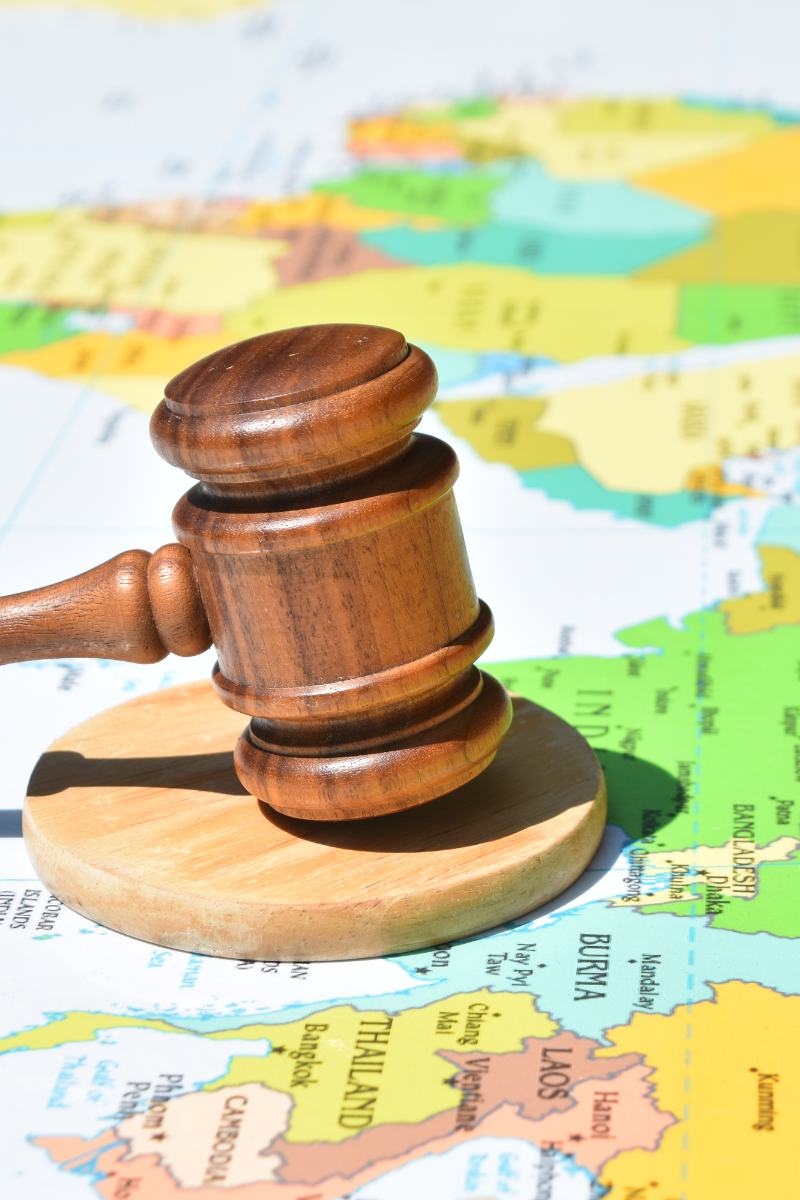National Children’s Day: What to Do If Your Child Has Been Abducted Internationally
National Children’s Day is a time to celebrate the joys of childhood and reaffirm our commitment to the protection, health, and happiness of children everywhere. Yet for some parents, this day can serve as a painful reminder of the unthinkable: their child has been taken across international borders, without consent. International child abduction is a terrifying and emotionally devastating experience, especially when legal systems and international jurisdictions come into play.
At Masters Law Group, we understand how distressing this experience can be. With years of experience handling international custody disputes and Hague Convention cases, our legal team is equipped to help parents navigate the difficult and urgent legal processes involved.
In today’s blog, we’re covering crucial information for parents, guardians, and loved ones about what to do if your child has been abducted internationally and how to take legal action to bring them home.
Understanding International Child Abduction
International child abduction typically occurs when one parent or guardian unlawfully takes a child from their country of habitual residence to another country, often in violation of a custody order or without the knowledge and/or consent of the other parent.
This is not just a personal or family matter—it is a serious legal issue governed by international law, national legislation, and bilateral or multilateral treaties.
Common Scenarios Include:
- A non-custodial parent taking a child abroad during a visitation and not returning them.
- A parent fleeing with a child during a custody battle to gain favorable jurisdiction.
- A parent taking a child abroad under the guise of a vacation and not returning.
Regardless of motive, such acts can have lasting emotional, psychological, and developmental effects on a child. It’s imperative to act quickly and legally.
The Hague Convention on the Civil Aspects of International Child Abduction
One of the most powerful tools available in resolving international abduction cases is the Hague Convention on the Civil Aspects of International Child Abduction. This international treaty provides a legal framework for helping secure the prompt return of children wrongfully removed or retained across international borders.
Key Points of the Hague Convention:
- Applies to children under the age of 16.
- Focuses on the child’s habitual residence prior to abduction.
- Aims to restore the status quo before the abduction occurred.
- Does not address custody or visitation rights but simply the return of the child to their habitual residence.
Currently, over 100 countries are signatories to the Hague Convention, including the United States. If your child has been taken to a Hague Convention partner country, you may file a petition under this treaty for their return.
Steps to Take Immediately If Your Child Has Been Abducted Internationally
1. Contact Law Enforcement and Obtain Documentation
Report the abduction to your local police department and the FBI immediately. It’s important to have the situation documented and to request a missing persons report. This step also helps establish a timeline and can assist future legal proceedings.
2. Contact the U.S. Department of State
The Office of Children’s Issues within the U.S. Department of State is the central authority for handling international child abduction cases. They can:
- Offer guidance and support throughout the process.
- Communicate with foreign central authorities.
- Assist with Hague Convention applications.
Visit: travel.state.gov or call the Office of Children’s Issues: 1-888-407-4747
3. Gather All Legal Documentation
Compile court orders, custody agreements, birth certificates, passports, and any communication records (emails, texts, social media) related to the abduction. These documents are essential in supporting your case and initiating legal action.
4. Hire a Family Law Attorney Experienced in International Abduction
Not all family law attorneys are equipped to handle international cases. Masters Law Group has extensive experience in Hague Convention proceedings and custody disputes involving multiple jurisdictions. Our team can:
- Draft and file a Hague petition.
- Work with foreign counsel and authorities.
- Represent you in U.S. and international courts if necessary.
5. File a Hague Application
If the abduction involves a Hague Convention country, your attorney will help you submit a Hague Application for Return of the Child. This application is submitted to the Central Authority in your child’s habitual residence and is forwarded to the country where the child is located.
The goal is to have the foreign court order the return of the child, assuming no legal defenses (such as grave risk to the child) are successful.
What If the Abduction Involves a Non-Hague Country?
Not all countries are party to the Hague Convention. If your child is taken to a non-Hague country, the path to recovery can be significantly more complicated. You may face:
- Weak or inconsistent child custody laws.
- Lack of international cooperation.
- Extended court battles.
In such cases, diplomatic channels, international custody litigation, and local legal counsel in the foreign jurisdiction are often required. Masters Law Group can help you build a coordinated strategy involving:
- U.S. consular support.
- Interpol Yellow Notices.
- Enforcement of U.S. custody orders abroad when possible.
Legal Challenges You May Face
1. Jurisdictional Disputes
One of the first battles in international child abduction cases is determining which court has jurisdiction. If the foreign country claims custody authority, you may need to litigate your right to have the case heard in the U.S.
2. Time Sensitivity
Under the Hague Convention, petitions should be filed within one year of the abduction. After that, the court may consider whether the child is now settled in the new environment, potentially complicating the case.
3. Affirmative Defenses
Even in Hague cases, the respondent (the abducting parent) can raise legal defenses such as:
- The child is at grave risk of harm if returned.
- The child has reached an age and maturity level and objects to being returned.
- The parent seeking return consented to the removal.
Overcoming these defenses requires thorough legal analysis and robust evidentiary support.
The Role of the U.S. Government and International Authorities
The U.S. government plays a critical role in supporting left-behind parents. Besides the State Department’s Office of Children’s Issues, the following agencies may be involved:
- Interpol: Issues Yellow Notices to help locate missing children.
- U.S. Embassies and Consulates: Provide local country support.
- Department of Justice: Can assist in the prosecution of parental kidnapping under U.S. law, where appropriate.
However, diplomatic efforts are not a substitute for legal action, and that’s where a family law attorney can be indispensable.
Preventive Measures to Avoid International Abduction
While not always preventable, there are steps you can take to help reduce the risk of international parental abduction:
- Secure a detailed custody agreement that outlines travel restrictions and parental responsibilities.
- Request court orders that require consent for travel outside of the country.
- Enroll your child in the Children’s Passport Issuance Alert Program (CPIAP) through the U.S. State Department.
- Notify schools and caregivers about custody arrangements and travel restrictions.
Being proactive and vigilant can help deter potential abductions and provide legal tools if one occurs.
What You Can Expect from Masters Law Group
At Masters Law Group, we provide comprehensive legal support for families affected by international child abduction. Our services include:
- Filing Hague Convention petitions for child return.
- Advocating for your rights in U.S. federal and state courts.
- Coordinating with foreign attorneys and Central Authorities.
- Advising on custody enforcement and parental relocation cases.
- Emergency legal strategies for time-sensitive situations.
Our attorneys have successfully represented clients in both domestic and international child custody cases and understand the emotional and legal toll these cases take.
Real Results: Successful Hague Cases
2024:
- District of South Carolina Rock Hill Division / Mexico: Decision and Order/ Motion for Summary Judgment
- Northern District of Illinois / Ireland: Memorandum Opinion and Order
- Western District of Michigan / Brazil: Representative Decisions
- District of Colorado / Colombia: Aguirre, Decision and Order
2023:
- Northern District of California / Cyprus: Efthymiou v. Labonte, Findings of Fact and Conclusions of Law
- Southern District of Iowa / Mexico, Order Adopting Report and Recommendation
Prior:
- Eastern District of Wisconsin / Mexico: Hinnendael, Decision and Order
- Northern District of Illinois / New Zealand: Ho, Memorandum Opinion and Order
- Northern District of Illinois / Lithuania: Sulcaite, Memorandum Opinion and Order
Contact Us
If you or someone you know is facing international child abduction, don’t wait. The sooner you act, the better the chances of a successful resolution.
📍 Masters Law Group
📞 Phone: (312) 609-1700
🌐 masters-lawgroup.com
📍 Locations: Chicago, IL & Nationwide Support Available
A Message of Hope on National Children’s Day
National Children’s Day reminds us of the preciousness of our children and the importance of safeguarding their well-being, emotionally, physically, and legally. If your child has been abducted, you are not alone. Though the road ahead may be difficult, legal remedies exist, and there are experienced professionals who can help bring your child home.
At Masters Law Group, we are committed to standing by you every step of the way—with compassion, diligence, and fierce advocacy.
FAQs: International Child Abduction
1. What qualifies as international parental child abduction?
International parental child abduction occurs when one parent takes a child under the age of 16 across international borders without the consent of the other parent or in violation of a court custody order. This includes instances where a child is taken abroad and not returned after an agreed-upon visit or vacation.
2. What is the Hague Convention, and how can it help me?
The Hague Convention on the Civil Aspects of International Child Abduction is a multilateral treaty designed to return abducted children promptly to their country of habitual residence. If your child has been taken to a country that is a Hague signatory, you can petition for their return through the treaty’s legal framework. It does not decide custody, but helps ensure the child returns to the correct jurisdiction for custody decisions to be made.
3. What if my child was taken to a country that is not part of the Hague Convention?
If your child is taken to a non-Hague country, the process is more complex. You may need to pursue legal action within that country’s courts, work with the U.S. State Department and foreign authorities, and potentially engage in diplomatic efforts. Masters Law Group can help coordinate these efforts and explore all legal avenues to recover your child.
4. How long do I have to file a Hague Convention petition?
You should file your Hague petition within one year from the date of the abduction. After one year, the court may consider whether the child has become settled in the new environment, which can affect the likelihood of a return order. However, filing after one year does not automatically disqualify your case.
5. What legal services does Masters Law Group provide in international abduction cases?
Masters Law Group provides comprehensive legal support for international child abduction cases, including:
- Filing Hague Convention petitions
- Representing parents in U.S. and international courts
- Coordinating with foreign attorneys and authorities
- Advising on the enforcement of custody orders
- Crafting emergency legal strategies for urgent cases
Our experience and dedication help families fight for the safe return of their children and protect their parental rights.




























